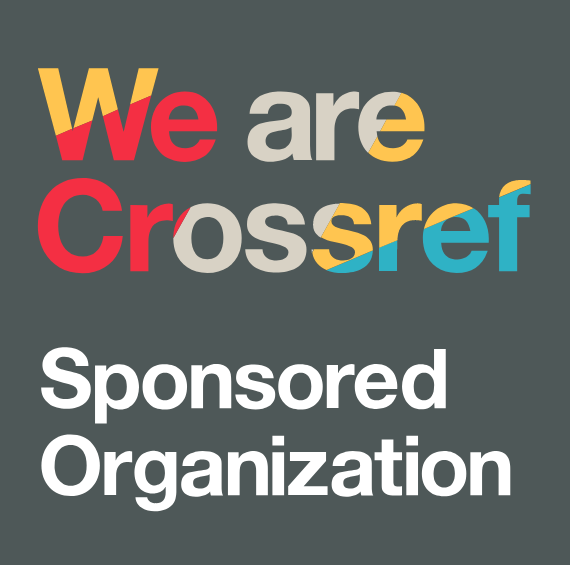Pengaruh Leadership Coaching dan Motivasi Terhadap Kinerja Dengan Komitmen Organisasi Sebagai Mediator pada Satuan Kerja Pelayanan Markas Polda Jambi
DOI:
https://doi.org/10.38035/jmpd.v1i3.67Keywords:
Leadership Coaching, Motivation,, Organizational Commitment, & PerformanceAbstract
The purpose of this study was to determine and analyze the influence of Leadership Coaching and motivation on performance through organizational commitment as a mediator in the Jambi Regional Police Yanma Unit. The analysis tool used is PLS analysis. The results showed that work motivation, Leadership Coaching, organizational commitment and employee performance at the Jambi Regional Police Yanma Unit were in the good category. Leadership Coaching has a positive and significant effect on organizational commitment to the Jambi Regional Police Yanma Unit. Work motivation has no significant effect on organizational commitment to the Jambi Regional Police Yanma Unit. Leadership Coaching has a positive and significant effect on employee performance at the Jambi Regional Police Yanma Unit. Work motivation has no significant effect on employee performance at the Jambi Regional Police Yanma Unit. Organizational commitment has a positive and significant effect on employee performance at the Jambi Regional Police Yanma Unit. Leadership Coaching has a significant and positive effect on employee performance with organizational commitment as a mediator variable in the Jambi Regional Police Yanma Unit. Work motivation has no significant effect on employee performance with organizational commitment as a mediator variable
References
Caillier, J.G. (2014). Toward a Better Understanding of the Relationship Between Transformational Leadership, Public Service Motivation, Mission Valence, and Employee Performance: A Preliminary Study. Public Personnel Management, 43(2), 218–239.
Ghozali, I. and Latan, H. (2015). Partial Least Squares Konsep, Teknik dan Aplikasi Menggunakan Program SmartPLS 3.0. Badan Penerbit, Universitas Diponegoro Semarang.
Havidz, H. B. H., & Yandi, A. (2020). Determination Of Organizational Commitment: Perceived Organizational Support, Communication, And Leadership Styles (A Human Resource Management Literature Study). Dinasti International Journal of Management Science, 1(3), 430-454.
Heifetz, Ronald. (2009). 5Prinsip Kepemimpinan. Jakarta: Prestasi Pustaka Publisher.
Kader Ali, N. N., & Tang, S. Y. (2016). Does Multiple Leadership Styles Mediated by Job Satisfaction Influence Better Business Performance? Perception of MNC Employees in Malaysia. SHS Web of Conferences, 23(2011), 02005. https://doi.org/10.1051/shsconf/20162302005
Lian, B., & Fitriani, Y. (2021). Application of Democratic Leadership Style in Improving Employee Work Discipline and Motivation. ISEJ: Indonesian Science Education Journal ISSN-Online, 2(1), 1–11.
Mangkunegara., A.P. (2018). Manajemen Sumber Daya Manusia (Teori Motivasi Kerja). Bandung : PT. Remaja.
Mowday, R. T., Porter, L. W., & Steeras, R. (1982). Organizational Linkages: the Psychology of Commitment, Absenteeism, and Turnover. San Diego, California: Academic Press
Moynihan, D. P., S. K. Pandey, and B. E. Wright. (2012). Setting the Table: How Transformational Leadership Fosters Performance Information Use. Journal of Public Administration Research and Theory 22(1): 143-164
Novitasari, D., Asbari, M., Amri, L. H. A., & Hutagalung, D. (2021). Mengelola Komitmen Dosen: Analisis Peran Modal Psikologis dan Leaders Coaching. Value?: Jurnal Manajemen Dan Akuntansi, 16(1), 198–213. https://doi.org/10.32534/jv.v16i1.1845
Pratama, H.E. (2019). Pengaruh Coaching Terhadap Kinerja Karyawan pada PT. PLN(Persero) Distribusi Jawa Barat dan Banten. Jurnal Telkom University Open Library, 1 (1), 1-12
Sugiyono. (2016). Metode Penelitian Kuantitatif, Kualitatif, dan R&D. Bandung: ALFABETA
Wardhana, Aditya. (2014). Manajemen Sumberdaya Manusia. Bandung: PT. Karya Manunggal Lithomas.
Yandi, A. (2022). Literature Review Model Produktivitas Karyawan: Motivasi, Lingkungan Kerja, dan Kompensasi. Jurnal Ilmu Multidisplin, 1(1), 23-32.
Downloads
Published
Issue
Section
License
Hak cipta :
Penulis yang mempublikasikan manuskripnya di jurnal ini menyetujui ketentuan berikut:
- Hak cipta pada setiap artikel adalah milik penulis.
- Penulis mengakui bahwa JMPD berhak menjadi yang pertama menerbitkan dengan lisensi Creative Commons Attribution 4.0 International (Attribution 4.0 International CC BY 4.0) .
- Penulis dapat mengirimkan artikel secara terpisah, mengatur distribusi non-eksklusif manuskrip yang telah diterbitkan dalam jurnal ini ke versi lain (misalnya, dikirim ke repositori institusi penulis, publikasi ke dalam buku, dll.), dengan mengakui bahwa manuskrip telah diterbitkan pertama kali di JMPD.





















